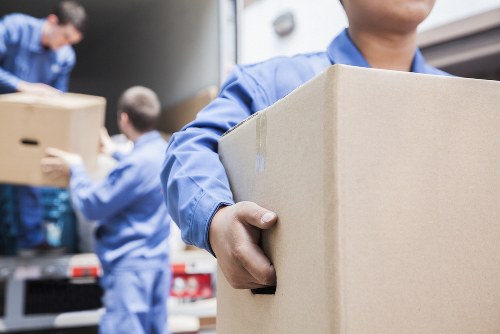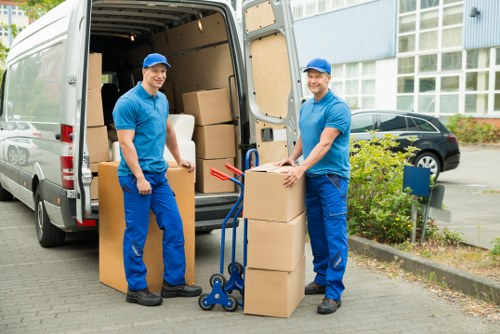White Goods Recycle Ware: A Comprehensive Guide
Introduction to White Goods Recycling

White goods, such as refrigerators, washing machines, and dishwashers, are essential appliances in our daily lives. However, when they reach the end of their lifespan, it's crucial to recycle them properly to minimize environmental impact. Recycling white goods not only conserves resources but also reduces landfill waste.
In Ware, a town known for its commitment to sustainability, white goods recycling has become a key component in promoting eco-friendly practices. This guide will explore the benefits, processes, and local services available for recycling white goods in Ware.
Understanding the importance of recycling helps individuals make informed decisions about disposing of their old appliances responsibly.
Why Recycle White Goods?

Recycling white goods offers numerous environmental and economic benefits. By recycling, we can:
- Reduce the consumption of raw materials
- Lower energy usage in manufacturing new products
- Minimize greenhouse gas emissions
- Decrease landfill waste
- Create job opportunities in the recycling industry
Moreover, many components of white goods, such as metals and plastics, can be repurposed, further enhancing their value and utility.
Proper recycling also ensures that harmful substances like refrigerants and heavy metals are safely handled and disposed of.
How to Recycle White Goods in Ware

Recycling white goods in Ware is a straightforward process thanks to several local services and facilities dedicated to this purpose. Here are the steps to follow:
- Locate a Recycling Center: Identify nearby recycling centers that accept white goods. Some local councils offer scheduled collection services.
- Prepare Your Appliance: Ensure that the appliance is clean and free of personal items. Disconnect it from the power source and, if possible, remove any detachable parts.
- Transport the Appliance: Depending on the size and weight, you can transport the appliance yourself or arrange for a collection service.
- Drop-Off or Collection: Take the appliance to the recycling center or have it picked up by the recycling service.
- Receive Certification: Some services provide a certificate of recycling, which can be useful for warranty claims or tax purposes.
Local Recycling Services in Ware

Ware boasts several reliable recycling services that specialize in white goods. These services ensure that your appliances are handled responsibly and recycled efficiently.
One prominent service is Ware’s Municipal Recycling Facility, which accepts a wide range of white goods and offers both drop-off and collection options.
Additionally, various private companies operate in the area, providing convenient pick-up services for larger appliances, often accommodating flexible schedules to suit your needs.
Environmental Impact of Recycling White Goods

The environmental benefits of recycling white goods are substantial. By diverting these large appliances from landfills, we reduce soil and water contamination caused by hazardous materials.
Recycling also conserves natural resources, as many components of white goods, such as metals and plastics, can be reused in the production of new items. This reduces the need for mining and manufacturing, which are energy-intensive processes.
Furthermore, recycling white goods helps in lowering the overall carbon footprint, contributing to the fight against climate change.
Challenges in Recycling White Goods
Despite the clear benefits, recycling white goods presents several challenges:
- Logistical Issues: Transporting large and heavy appliances can be difficult and costly.
- Complex Disassembly: White goods contain various materials that require careful disassembly and sorting.
- Hazardous Materials: Handling substances like refrigerants and heavy metals requires specialized knowledge and equipment.
- Consumer Awareness: Many individuals are unaware of the available recycling options or the importance of recycling their appliances.
Addressing these challenges involves improving infrastructure, increasing public awareness, and encouraging policies that support effective recycling practices.
Collaboration between the government, private sector, and communities is essential to overcome these obstacles and enhance white goods recycling rates.
Benefits to the Community
Recycling white goods in Ware benefits the community in several ways:
- Job Creation: The recycling industry creates jobs in collection, processing, and management of recycled materials.
- Economic Growth: Recycled materials can be sold to manufacturers, contributing to the local economy.
- Environmental Health: Reduced pollution and conservation of resources lead to a healthier environment for residents.
- Community Engagement: Recycling programs foster a sense of responsibility and community involvement.
Engaging the community in recycling initiatives helps build a culture of sustainability and environmental stewardship.
Educational campaigns and incentives can further encourage residents to participate actively in recycling efforts.
Innovations in White Goods Recycling
The recycling industry is continually evolving, with new technologies and methods improving the efficiency and effectiveness of white goods recycling. Innovations include:
- Automated Sorting: Advanced machinery can quickly and accurately sort different materials from recycled appliances.
- Improved Processing Techniques: New methods allow for better extraction and reuse of valuable materials.
- Eco-friendly Designs: Manufacturers are designing appliances with recycling in mind, making them easier to disassemble and recycle.
- Extended Producer Responsibility (EPR): Policies that require manufacturers to take responsibility for the entire lifecycle of their products encourage sustainable design and recycling.
These innovations not only enhance the recycling process but also promote a circular economy where products are reused and recycled continuously.
Technological advancements are crucial in addressing the complexities of white goods recycling and making it more accessible to the general public.
Local Success Stories
Ware has witnessed several successful recycling initiatives that highlight the town’s commitment to sustainability. For instance, the Ware Green Initiative has partnered with local businesses to facilitate the collection and recycling of white goods, ensuring that appliances are processed responsibly.
Another example is the annual Ware Recycling Fair, which educates residents about the importance of recycling and showcases the latest recycling technologies and services available in the area.
These success stories demonstrate the positive impact of community-driven efforts in promoting white goods recycling and setting a standard for other towns to follow.
How You Can Contribute
Everyone has a role to play in recycling white goods effectively. Here’s how you can contribute:
- Stay Informed: Learn about the recycling options available in Ware and the proper way to prepare your appliances for recycling.
- Choose Sustainable Products: When purchasing new appliances, opt for energy-efficient models designed for easy recycling.
- Participate in Recycling Programs: Engage with local recycling initiatives and encourage others to do the same.
- Reduce, Reuse, Recycle: Follow the three R’s principle to minimize waste and promote resource conservation.
By taking these steps, you help create a sustainable future for Ware and contribute to the global effort to protect our environment.
Small actions, when combined, can lead to significant positive changes in our community and beyond.
Future of White Goods Recycling in Ware
The future of white goods recycling in Ware looks promising, with ongoing efforts to enhance recycling infrastructure and increase public participation. Plans include expanding recycling facilities, implementing more efficient collection systems, and introducing educational programs to raise awareness.
Technological advancements will continue to play a pivotal role in improving the recycling process, making it more efficient and less costly.
Additionally, policies that support sustainable practices and incentivize recycling will further drive progress and ensure that Ware remains a leader in environmental stewardship.
Conclusion
Recycling white goods in Ware is essential for promoting environmental sustainability and conserving valuable resources. By understanding the benefits, navigating the recycling process, and utilizing local services, residents can make a significant impact.
Ware’s dedication to recycling and sustainability sets a powerful example for other communities. By continuing to innovate and engage the public, Ware can ensure a greener and more sustainable future for all.
Embracing white goods recycling is not just a responsible choice—it’s a necessary step towards a healthier planet.
Frequently Asked Questions
1. What are white goods?
White goods refer to large household appliances such as refrigerators, washing machines, dryers, dishwashers, and ovens. They are typically finished in white enamel, hence the name.
2. Why is recycling white goods important?
Recycling white goods helps conserve natural resources, reduces energy consumption, minimizes landfill waste, and prevents the release of harmful substances into the environment.
3. How can I recycle my old appliances in Ware?
You can recycle your old appliances by locating a local recycling center in Ware, preparing the appliance for transport, and either dropping it off or arranging for a collection service.
4. Are there costs associated with recycling white goods?
Some recycling services may offer free collection, especially for large appliances, while others might charge a nominal fee. It’s best to check with the specific recycling center or service provider.
5. What happens to white goods after they are recycled?
After recycling, white goods are disassembled, and their materials are sorted. Metals, plastics, and other recyclable components are processed and repurposed into new products, while hazardous materials are safely disposed of.